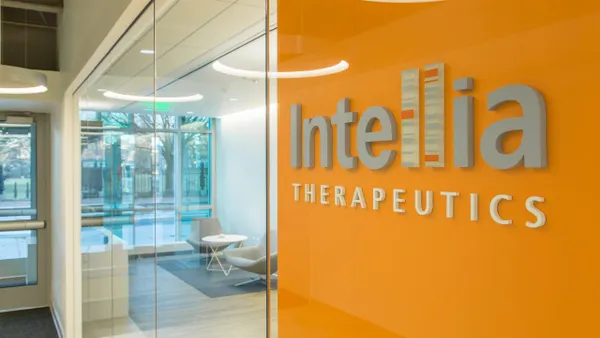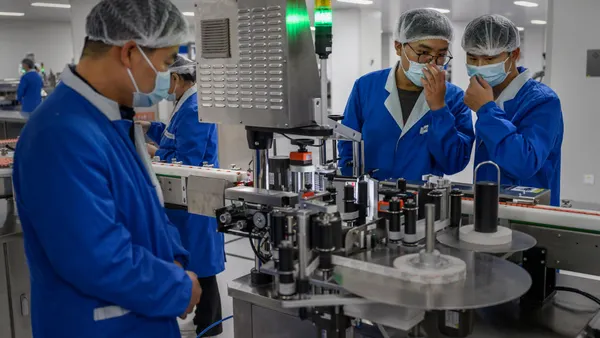Dive Brief:
- RNA editing startup Airna is adding more funds to its Series A round, raising another $60 million as it develops genetic medicines for lung, cardiovascular, metabolic and blood diseases.
- The Boston- and Germany-based biotechnology company made its debut last September with $30 million, launching with a plan to develop a medicine for the rare inherited disorder alpha-1 antitrypsin deficiency.
- Proceeds from the round will help the company take its AATD drug candidate into the clinic as early as next year, said Kris Elverum, Airna’s CEO.
Dive Insight:
Airna describes its drugmaking approach as a safer alternative to the direct editing of DNA, such as via CRISPR-based techniques.
"DNA is like the hardware of the cell, with the foundation," Elverum said. "RNA I think of as the software of the cell, which makes and operates the machines."
Airna was co-founded by Thorsten Stafforst, a professor studying RNA editing at the University of Tübingen, and by Jin Billy Li, a longtime geneticist and professor at Stanford University. The company’s science is based around enzymes called adenosine deaminase acting on RNA, or ADAR, which help modify and regulate genes.
The company’s lead program is trying to correct the mutation that causes AATD, which can affect either the liver or lungs, and leads to conditions such as chronic obstructive pulmonary disease. Researchers estimate up to 100,000 people in the U.S. have the deficiency.
Treatment of AATD depends on symptoms and can involve bronchodilators, antibiotics and, in some cases, injections of replacement AAT protein. A subcutaneous injection that is administered infrequently and "can repair the underlying disease" would be preferable, Elverum said.
“RNA allows us to go after targets and root cause biology, but also have a drug product with a cost benefit that is quite favorable for large diseases and for treating earlier in the disease course,” Elverum said.
Airna’s Series A extension was led by European life sciences investor Forbion, and also involved Arch Venture Partners, Ono Venture Investment, Alexandria Venture Investments and ND Capital. Its board of directors is chaired by Rodger Novak, the co-founder of CRISPR Therapeutics.
A handful of companies are working on RNA-modulating treatments for AATD, including Wave Life Sciences, which launched a clinical trial for its drug this year. Among the drugs farthest along in clinical testing is Sanofi's INBRX-101, which it acquired in January as it was being tested in a Phase 2 trial, as well as Arrowhead Pharmaceuticals' experimental liver disease drug in development with Takeda.














